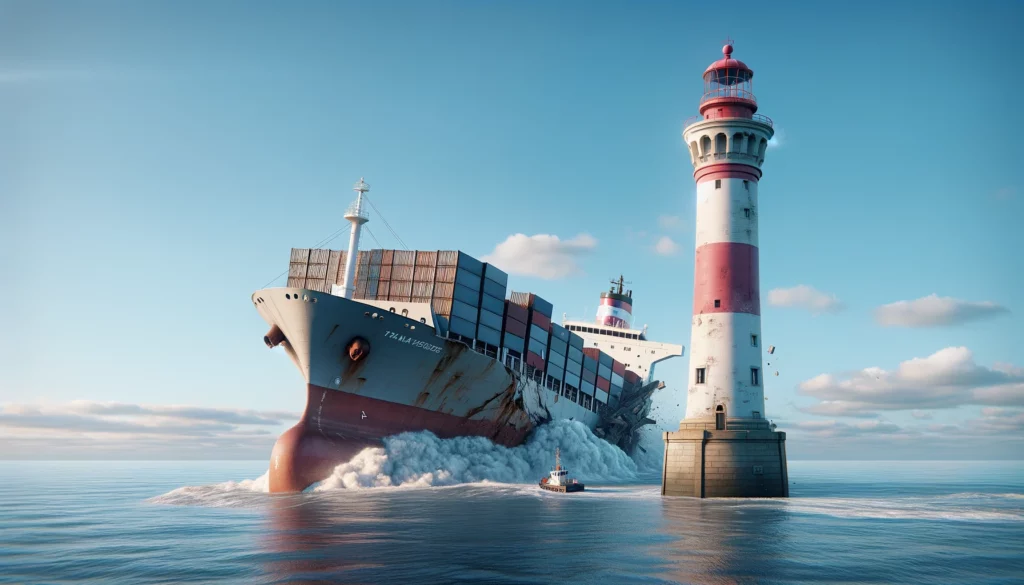Maritime allisions represent a category of maritime accidents where vessels collide with one another, stationary objects, or structures on the water. These incidents can lead to significant consequences, including property damage, injuries, and complex legal and safety considerations.

We explore the key aspects of maritime allisions.
Defining Maritime Allisions
A maritime allision occurs when one vessel makes unintended contact with another vessel, a stationary object (such as a pier, dock, or buoy), or a maritime structure. The specific circumstances surrounding the allision, including the types of vessels involved and the nature of the impact, are essential factors in assessing the incident’s impact.
Common Causes
Maritime allisions can result from various factors, including navigational errors, equipment malfunctions, adverse weather conditions, miscommunications between vessel operators, or a combination of these elements. Investigating the root causes is critical for determining liability and improving maritime safety.
Liability and Responsibility
Determining liability in maritime allision cases can be complex. Responsibility may fall on one or more of the vessels involved, their operators, or other entities responsible for maintaining navigational aids and structures. Liability considerations encompass factors such as negligence, adherence to safety protocols, and compliance with maritime regulations.
IV. Safety Protocols and Preventive Measures
Preventing maritime allisions involves a combination of safety protocols and preventive measures. Proper training for vessel operators and crew, adherence to safety regulations, well-maintained equipment, accurate navigation systems, and clear communication with other maritime actors are crucial components.
Legal Considerations
Maritime allisions fall under admiralty or maritime law, governing maritime incidents and disputes. Legal considerations include compliance with federal and international regulations, insurance claims, and potential litigation. Consulting with maritime attorneys experienced in such cases is advisable for all parties involved.
